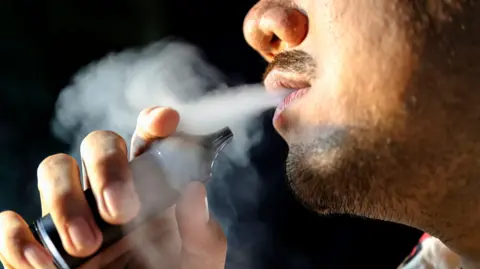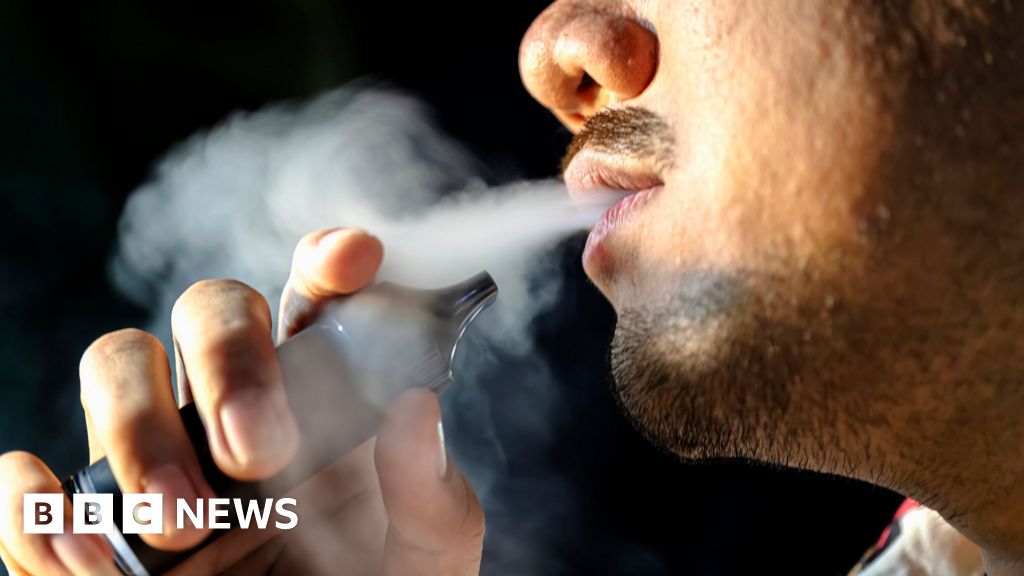Singaporean authorities have announced tougher penalties for vaping as they try to crack down on the increasing use of drug-laced vapes in the country.
These include stiffer fines, longer jail terms, and even caning. Foreigners may also be deported.
While Singapore was one of the first places in the world to ban vaping in 2018, the practice has persisted and in recent months, the city-state has seen a rise in popularity of vapes laced with etomidate, an anaesthetic drug.
This has caused widespread alarm in the country, which has some of the world's toughest drug laws.
In recent months, authorities have acknowledged the growing prevalence of etomidate-laced vapes, more popularly known as Kpods in Singapore. The nickname refers to how etomidate has effects similar to ketamine.
A random sample test of 100 seized vapes in July found that a third contained etomidate.
Videos of teenagers acting erratically while vaping have sparked concern among Singaporeans, who widely support stringent penalties for drug offenses.
Health Minister Ong Ye Kung stated that the tougher laws were essential as 'vapes have become a gateway for serious substance abuse,' effectively turning these devices into 'delivery mechanisms' for drugs.
The government has classified etomidate as a Class C controlled drug for six months, with new rules effective from September 1. Those caught using or possessing vapes will face increased fines starting from S$500 (£288; $390) and mandatory rehabilitation.
Penalties for suppliers of drug-laced vapes can reach up to 20 years in jail and 15 strokes of caning. Foreigners caught in violation will not only face these penalties but risk the revocation of their permits and possible deportation.
Signs at Changi Airport will remind tourists of the vaping ban, with disposal bins available for compliance.
The rules are temporary as the government develops more comprehensive laws against drug delivery via vapes. This initiative is part of a significant public health campaign, with advertisements urging cessation of vaping everywhere, and police actively patrolling public transport.
With many vapes imported from neighboring countries, checks at land and air entry points will be intensified. Singapore’s crackdown aligns with global trends where other nations, like the UK and Australia, have instituted tighter regulations to curb youth vaping.


















